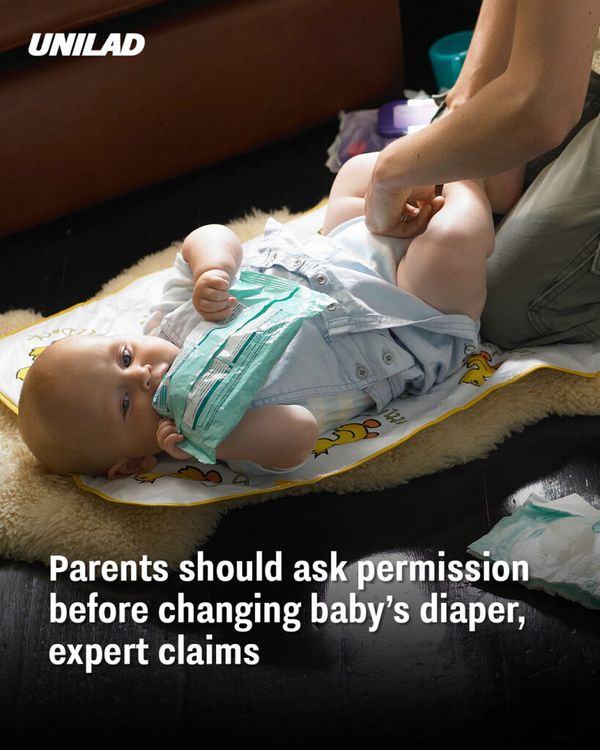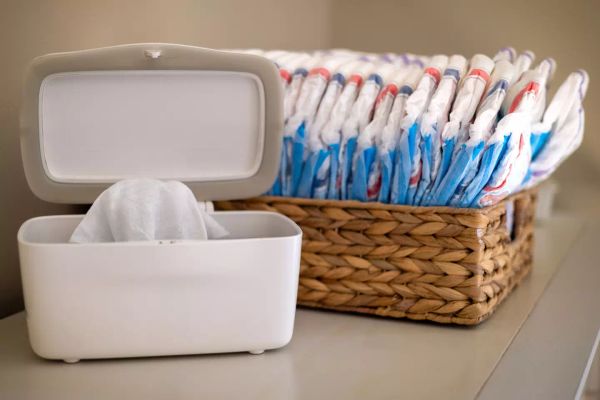Diaper changing is an essential part of caring for babies, but have you ever considered the importance of communication and consent during this process? According to Deanne Carson, a sexuality expert, there are ways in which parents can engage with their babies to ensure that their needs and preferences are respected.

While babies cannot verbally express their consent, Deanne suggests that parents should create a space for communication by asking their baby if it’s okay to change their diaper. This might sound unconventional, but the idea behind it is to establish a sense of respect for the baby’s response. By waiting for body language and making eye contact, parents can convey to their child that their feelings matter.
Of course, it’s unlikely that a baby will respond with a resounding “yes” to a diaper change request. However, the purpose of this approach is to establish a connection between parent and child and to acknowledge the baby’s autonomy in a small way.
It is important to note that Deanne did not provide guidance on what to do if a baby’s body language suggests that they are not comfortable with being changed. Leaving a baby in an unsanitary condition until they “consent” is certainly not an ideal solution. Parenting is a balancing act, and it is crucial to find approaches that prioritize the well-being and hygiene of the child while also respecting their needs and boundaries.
Unsurprisingly, Deanne’s suggestion has sparked various reactions among parents. Many feel that it is unrealistic and impractical, particularly when dealing with wriggling and uncooperative toddlers. Some have labeled it as absurd, emphasizing that it is a parent’s responsibility to ensure their child’s hygiene. While consent is undoubtedly important, there is a consensus that Deanne may have taken the concept to an extreme.
Nevertheless, the conversation around consent does have its merits. It reminds us of the importance of fostering communication with our children from a young age and treating them with respect. Although the specific method proposed by Deanne may not be suitable for everyone, it highlights the need for open and empathetic interactions between parents and children.
Interestingly, a popular childcare chain has taken a similar approach by encouraging parents to ask for their child’s cooperation during diaper changes. This advice includes talking the child through the process, engaging their senses, and even allowing them to participate by taking off their nappy or wiping themselves as they grow older.
In conclusion, while the idea of asking a baby’s permission before changing their diaper may not be practical for every parent, it brings attention to the significance of communication and respect in the parent-child relationship. By finding methods that prioritize the health and well-being of our little ones while still acknowledging their autonomy, we can create a nurturing and empowering environment for them to grow.







